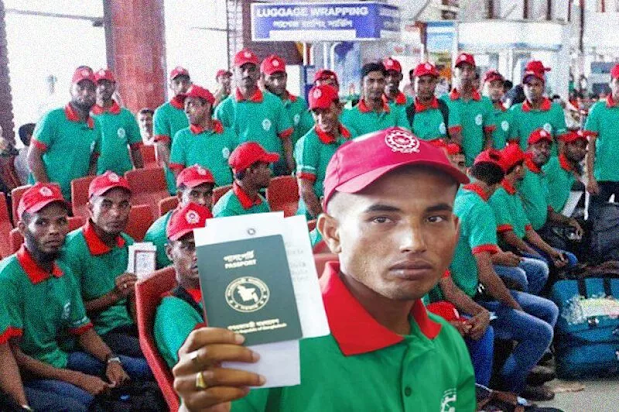Over 0.1 Million Bangladeshi Workers Found Jobs Overseas in January
According to a recent report by The Workers Rights, more than 0.1 million Bangladeshi workers found jobs overseas in the month of January. This news comes as a breath of fresh air for many workers who have been struggling to find employment in their own country due to the ongoing pandemic and its economic impacts.
The majority of these Bangladeshi workers have found employment in the Middle East, particularly in the construction and hospitality industries. Saudi Arabia, the United Arab Emirates (UAE), and Qatar are among the top countries that have hired the most Bangladeshi workers. The report also states that many of these workers are employed in low-wage jobs, which have been the norm for Bangladeshi workers in the past.
Despite the low wages, many workers are eager to take on these opportunities as they offer better working conditions and benefits compared to what they would receive in Bangladesh. In addition, these jobs provide a much-needed source of income for their families.
The COVID-19 pandemic has hit Bangladesh's economy hard, causing many workers to lose their jobs or face reduced hours and pay. This has led to a surge in demand for overseas employment opportunities, as many workers seek better job security and financial stability.
However, the process of finding overseas jobs can be complex and often involves high recruitment fees and exploitation by middlemen. To address this issue, the Bangladesh government has taken steps to regulate the recruitment process and protect workers' rights. The government has also signed agreements with countries that employ Bangladeshi workers to ensure their safety and welfare.
In conclusion, the news of more than 0.1 million Bangladeshi workers finding jobs overseas in January is a positive development for the country's economy and its workforce. While these jobs may offer low wages, they provide much-needed employment opportunities for workers who have been struggling to find work in their own country. It is crucial that the government continues to prioritize workers' rights and welfare to ensure that they are not exploited or mistreated in the recruitment process or in their new jobs overseas.



Comments
Post a Comment